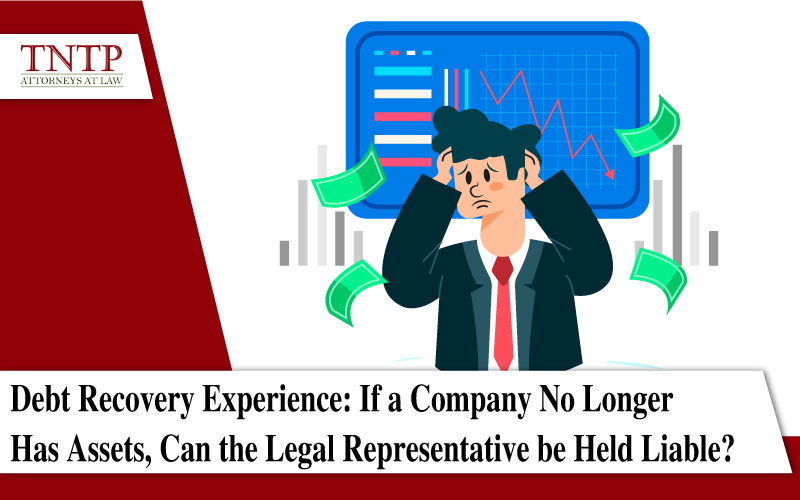In debt recovery activities, it is common for debtors to be unable to make payments. However, if a company has no remaining assets, can the legal representative be held liable for repaying the debt? In this article, TNTP lawyers provide their insights on this issue.
1. Liability based on the company structure
Under Vietnamese law, different types of companies have different levels of liability for the legal representative in terms of asset responsibility. Specifically:
• Limited Liability Companies (LLCs) & Joint Stock Companies (JSCs)
For these types of company, the owners/shareholders only bear limited liability within the amount of their contributed capital or registered shares. They are not personally liable for the company’s obligations with their own assets.
• Sole Proprietorship & Partnerships
For these types of company, the owner/partners must bear unlimited liability with all their personal assets for the company’s obligations, including debts.
Thus, depending on the type of Company, the legal representative of an LLC or JSC is not personally liable for the company’s debts. In contrast, for sole proprietorship and partnerships, the legal representative has unlimited liability for the company’s obligations using their own assets. Consequently, the level of responsibility of the legal representative is higher in private enterprises and partnerships.
2. Joint liability based on agreements between parties
• For LLCs and JSCs, although the legal representative’s liability for the company’s obligations is limited, the law does not prevent them from voluntarily assuming joint liability for the company’s debts.
• According to Article 288, Civil Code 2015, multiple parties can undertake an obligation toward a party with the right, and the party with the right may request any of the obligors to fulfill the entire obligation. This is known as joint liability.
If the parties agree to joint liability, both the company and its legal representative will be equally responsible for fulfilling the payment obligations, and the creditor has the right to demand full payment from either the company or the legal representative.
Thus, if a civil transaction establishes joint liability between the company and its legal representative, the legal representative may be held personally liable for the company’s debts.
3. Liability when a company is dissolved
• According to Clause 2, Article 207 of the Law on Enterprise 2020, a Company may only be dissolved if it has settled all debts and other asset-related obligations and is not involved in any disputes before a court or arbitration. Furthermore, both the relevant managers and the Company – if its enterprise registration certificate has been revoked – are jointly liable for the company’s debts.
• Additionally, according to Clause 24, Article 4 of the Law on Enterprise 2020, company managers, include the owner of a private enterprise and company executives, such as the general partner, Chairman of the Members’ Council, members of the Members’ Council, Chairman of the Company, Chairman of the Board of Directors, board members, Director or General Director, and other managerial positions as specified in the company’s charter.
Thus, it can be understood that Company managers and the Company itself (if its enterprise registration certificate is revoked) are jointly responsible for the company’s debts in the event of dissolution. Although the law does not explicitly determine whether the legal representative is a Company manager, TNTP’s view is that the legal representative is a Company manager and, therefore, should be jointly liable for the company’s debts if it is dissolved.
From the above analysis, it is evident that whether a legal representative can be held liable for a company’s debts depends on multiple factors. In some cases, liability arises from legal provisions or agreements between parties. This highlights the importance of companies carefully considering appropriate measures for managing outstanding debts.
This is the TNTP lawyers’ article on the topic: “Debt Recovery Experience: if a company no longer has assets, can the legal representative be held liable?” We hope this article provides valuable insights to readers.
Best Regard,








